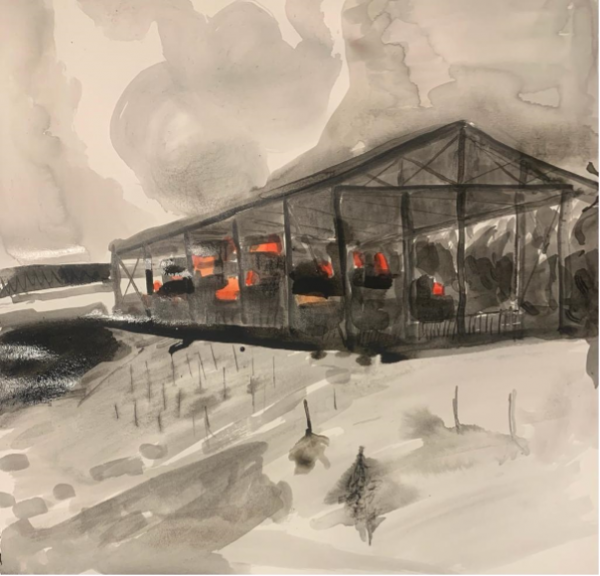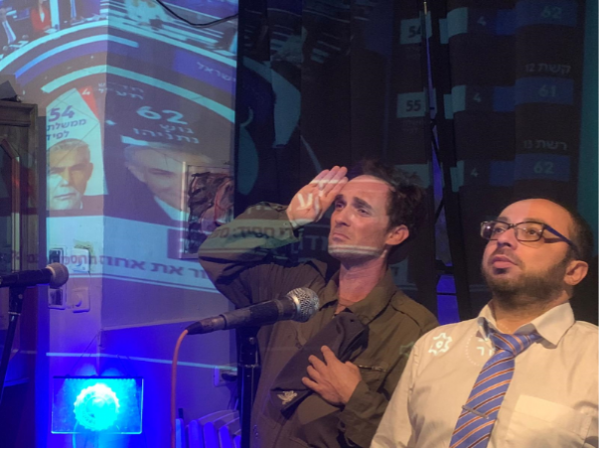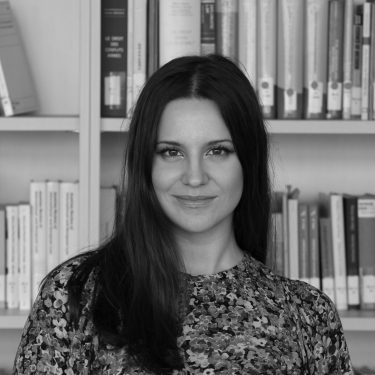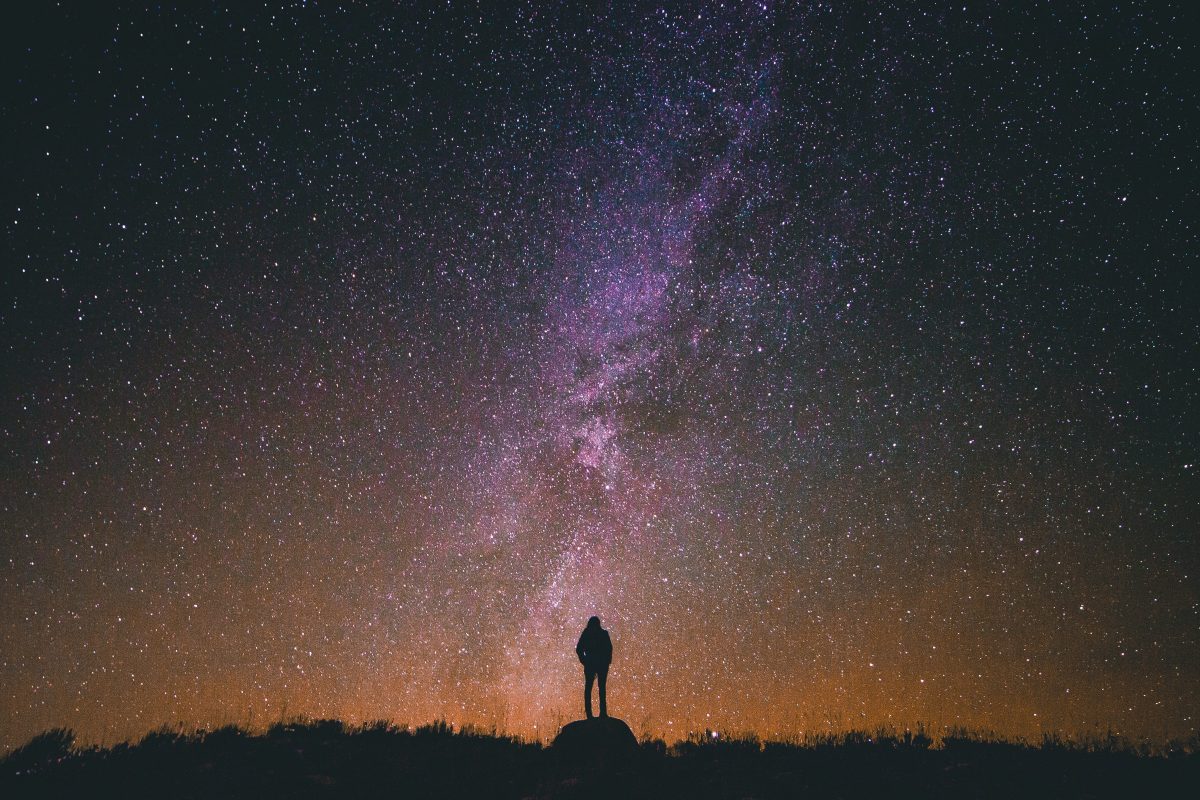Welcome to another interview of the Völkerrechtsblog’s symposium ‘The Person behind the Academic’! With us we have Prof. Itamar Mann, and through the following questions, we will try to get a glimpse of his interests, sources of inspiration and habits.
Welcome Prof. Mann and thank you very much for accepting our invitation!
May I first ask what it was that brought you to academia and what made you stay?
My education was a little bit of a winding road. During high school I planned to study art and become a visual artist. After three years in the Israeli military, I tried to start living the dream and enrolled in an art school in New York. I think I even thought I would quickly gain some recognition! That turned out to be complete nonsense, obviously. What I did end up doing is spending a lot of time in the library. Initially, I read mainly about art. I also started to read critical theory, philosophy, and politics… As months passed, it became apparent that the (economic) burden I put on myself and mainly on my parents by pursuing this path in NYC was unsustainable and quite unjustifiable. So I transferred to Tel Aviv University, where I thought I’d continue to read and hopefully write as well. I verged towards law classes following a woman who is now my wife. I also thought that law and particularly international law would allow me to have some positive contribution in ending the endless military government imposed by my country on Palestinians. The latter plan obviously did not work out either – things have gotten dramatically worse around here. But I ended up quite taken by legal studies and the way law sometimes offers cross-overs between academia and activism. After first enrolling in an MA program in philosophy, I finally decided to also pursue advanced degrees in law. My dad is an academic and a lawyer, so I guess after a long detour I finally ended up following his footsteps. One can say I chickened out of pursuing a life in art. I try to accept that, which is generally possible because I very much like what I do and am grateful for being able to read and write as a main part of my job.
I remember that in an earlier post on the Völkerrechtsblog, an illustration that you drew was used as a header. May I assume that if you were not an academic, you would be an illustration artist? If not, what do you think you would be?
The sketches and illustrations I do now are a kind of a coming-out-of-the-closet for me after for many years I thought I’d no longer paint or draw. My attitude to any kind of drawing was neurotic: I felt it would be too great a risk for me to expose any artwork or even just to do it for my own eyes. I guess a childish fear of failure of some kind. Then came the coronavirus. Like many of us I was at home a lot with my kids, and at least initially I was also really anxious about the seeming apocalypse. A friend gave me a sketchbook as a gift and said: “fill this”. And so I started to doodle mainly as an outlet for my fears and carried on (with some breaks) more or less since. The proposal to be an illustration artist, rather than an academic or a more pretentious kind of artist as I initially planned, is a very good one I think. It suggests the tendency not to take oneself too seriously while preserving a kind of bookishness. Thanks for that.
Could you share with us the most recent illustration that you have drawn?
As some readers may know, Israel quite recently had elections in which the far-right won in a decisive way. As a result, Israel seems to be going through a certain transition into a period of racism, xenophobia, and homophobia. One of the leading figures in this new and frightening political reality is Itamar Ben-Gvir, who has for years spouted anti-Arab slurs as a daily matter, and who has received enormous support in the last elections. One of the main aspects of his successful platform in the last elections was his call for what might be translated into English as “governability”. Endlessly stressing the grievances of Jewish citizens who have become victims of crime perpetrated by Arab Palestinians, he has come to talk a lot about what he calls “agricultural terrorism”. This strange phrase refers mainly to instances in which farmers in relatively rural areas of Israel have been subjected to instances of cattle theft or arson attacks on barns. The whole discourse, as may be apparent, has a colonial orientation. It imagines the small Israeli state as a kind of frontier to be protected from savages. It reminds me of J.M. Coetzee’s Waiting for the Barbarians. “Governability” is never about policing a group one belongs to, it is always about policing the other. In that regard, it is a Schmittian notion that is totally separate from “enforcement”.
My last drawing is one of a barn that has been set on fire and is about “agricultural terrorism”. What I try to do is at one of the same time express my fear of this category and this emerging government, and also of the sense that inevitably, I’m on the colonizer’s side even if I want to think otherwise. When this term is employed, I’m part of a group that collectively imagines itself as victims of “agricultural terrorism” — whatever that may mean; a group that then exploits that sense of victimhood in a project of expropriation ultimately leading to continued forced displacement of Palestinians. Philosopher Hagar Kotef has written on related sentiments in a very powerful way in her book The Colonizing Self.

[Picture of Itamar Mann’s latest drawing to which he refers in this answer.]
What has raised your academic interest in migration and refugee law?
When I was a student at Tel Aviv University, the law faculty established a new clinic for refugee rights. I thought the topic might be interesting and a little off the beaten track, and so decided to register. This was a period when asylum seekers from Sudan and Eritrea first started coming into the country. The work we did at the clinic was fascinating and I was moved by the meetings with men and women who crossed vast desert regions in order to seek safety. One of my teachers there, Dr. Tally Kritman-Amir who passed away last year after a fight against cancer, became a leading refugee law scholar and a friend.
During my military service in an intelligence unit I learned Arabic. But then I did not feel comfortable using it as a civilian; for years I thought it was irreparably tainted by a colonial relationship. With the Sudanese refugees, I had a first opportunity to use the language in a context that was not military and did not relate to national security interests. I loved learning about their very different dialect; and the language brought me even closer to the stories they told, and I would often sit and listen and write down what I heard. The stories invariably reminded me of stories I heard from my family about their experiences in Europe. On my mother’s side, both my grandmother and my grandfather came to Palestine during the British Mandate period as refugees from Nazi persecution.
At the same time, I studied political theory with Prof. Adi Ophir. Adi is an important philosopher who taught mostly continental philosophy, including the work of Hannah Arendt. In this context, I first read the classical chapter on refugees in Europe from Origins of Totalitarianism. The intersections between the refugee experiences that Arendt describes there, stories I heard in my family, and my own experiences as a budding refugee lawyer, generated my first published article. The article has been translated into English and I’m still quite proud of it.
Could you share with us three books that have had a major impact on your perception of justice?
Following on the previous answer, I guess I’ll start with saying I was really in awe reading Adi Ophir’s book The Orders of Evil. This book came out originally in Hebrew (2000), and I don’t know how well it reads in English. In Hebrew too, it is a very hard book to read and frankly I was never able to read it cover to cover. But still, many passages left a deep impression. It’s an attempt to advance a moral theory and a theory of justice that I think is quite influenced by and close to Jean-François Lyotard’s Le Différend. Adi is also quite influenced there by Emmanuel Levinas, something I took with me and tried to develop in my own book, Humanity at Sea.
What I hope I learned from Adi’s big book is a basic phenomenological sensitivity, by which I mean an aspiration to explain morality and justice – and especially injustice by way of how it is experienced. Another book that I was really blown away by when I read it as an LLM student was Justice Accused by Robert Cover. For those who might not be familiar with this 1975 book, it is about judges during slavery and especially about how they enforced slavery. Together with Hannah Arendt’s Eichmann in Jerusalem, Justice Accused really illustrated how monstrous a legal system can be without even realizing its own wrongfulness. I think of the military court system in the West Bank, which I have experienced both as a soldier and as a lawyer, as also exemplifying a similar condition.
I read the two books as a graduate student, a long time ago. To name just one book I read more recently, Lea Ypi’s memoir, Free (2021), really stuck in my mind. I know I’m not alone here. But I really need to read her previous philosophical books too. I found her story about the relative injustice of communism and capitalism in Albania very profound. I think it is perhaps also a generational thing. I’m in my early 40s, and like many people around my age, am very much living in the shadow of the false promises of the 90s. Anyways, it’s really a great book and I warmly recommend it.
Do you believe that religion has had an impact on your perception of justice?
I think my body misses the religion organ. I’m just not moved by religious sentiments at all. I’m not saying this with pride, I think my life is probably poorer for it. But this is the situation. I can appreciate religion as culture or as an intellectual project (in Judaism, the intellectual project is often one of legal interpretation). I can enjoy religious music. Ultimately, however, I don’t think religion per se is a driving force in my life. The closest thing to spirituality in my life is what Kant called the experience of the sublime, a feeling of beauty and of the tininess of human life. This mostly happens to me when I put on goggles and take a look under the surface of the sea.
Which of your publications is your favourite one? And which of them is your least favourite?
If it’s ok, instead of answering which is my favourite I think I would like to answer on which I think is the one that deserved more attention that it has so far received…. I’m thinking of an essay titled Hangman’s Perspective, which was published a couple of years ago in The Oxford Handbook of International Criminal Law. The essay is about Eichmann’s executor, and I also published a larger article that touches upon it in Hebrew, together with my brilliant friend and colleague Lihi Yona. In the essay version in English, I think I made a little breakthrough in legal theory, but relatively few people have engaged with it so far (an exception to this is Linda Kinstler, who has engaged with it in her wonderful new book Come to this Court and Cry). At the center of the book is the figure of Shalom Nagar, Eichmann’s executioner, who is also the subject of Netalie Braun’s excellent film The Hangman (2010). I now wrote a number of seemingly disconnected papers surrounding the Eichmann affair and Arendt’s notion of the banality of evil. I hope one day I’ll have the opportunity to connect them together somehow, perhaps in book form.
While I’m not sure which is my least favourite publication, I can see shortcomings in many of them. Sometimes, these shortcomings have been the direct results of the academic pressure to publish as much as possible. In such cases, a wish to reach a certain quantity may have compromised some of the potential quality. In other cases, the rush may have been a matter of academic vanity, and the hope to get some attention or traction quickly. Even with this same paper – Hangman’s Perspective – the relative lack of interest may be due to the fact that I should have spent more time perfecting the piece. Looking back, I would also perhaps not publish The Exodus Encounter as a free-standing piece. The Article is essentially the first chapter of my book, and at the time, I wanted to get it out there. Looking back, I’m not sure it has sufficient justification as a free-standing piece. It works much better as part of the book.
What is an energy and inspiration booster, at times when you have none?
The one thing that has constantly brought back energy to my body and clarity to my mind is swimming in the Mediterranean Sea. I try to go a couple of times a week, all year round. The combination of salt, air, movement, and an occasional encounter with a ray or a turtle is really a restart button for me! When I don’t do it enough my body feels weaker, and I feel more tired and disconnected.
What is your favourite place to read and write? What is always near you when you read and write?
I’m not really that interested in where I write as long as I can have time to sit for a couple of hours straight at a minimum. I have a relatively good ability to concentrate, and when I do, I feel that thinking and writing are kind of like travelling in the mind. This is a kind of high – almost like flying. And it is an addictive pleasure, often fuelled by copious amounts of coffee. (I do also often get stuck, in which case I will snack and snack again).
Which was the most recent concert that you attended? Which type of music do you enjoy the most?
The most recent concert I attended was by Vadim Nemirovsky (also known as “king of culture”) and Tsvi Petrovsky. This was in a small bar in downtown Haifa during election night, as the bad news started rolling in. The duo works with a playback generating synth-pop melodies, to which they add absurd, hilarious, and sometimes obscene lyrics. The themes they sing about are experiences of immigration from Russia to Israel, Israeli politics, the labor market, and sex. They were really the perfect comic relief for a horrible night, and I can only thank my good friend Iddo Markus for insisting that we go out on that night.

[Photo taken by Itamar Mann during the concert of Vadim Nemirovsky and Tsvi Petrovsky.]
In general, my musical diet is really quite eclectic. I can go for a Schubert piano sonata or a Chopin piano concerto in the morning or while working. In the beginning of the summer, I had the pleasure of travelling to Frankfurt for a migration law and political theory conference, and some of us went to see a production of Madame Butterfly, which I enjoyed. I’m writing during Christmas, which is not a holiday that I celebrate, but which is celebrated by the Christians in my town who tend to blast Fairuz’s holiday songs from their balconies – I like that very much. Right now I’m enjoying Stromae’s (relatively) new album and am plotting a visit to Europe to see him live.
Have you experienced or witnessed discrimination in academic circles? What do you think would help lessen discriminatory instances in academic circles?
I’m working in a law school where more or less a third of the student body is Arab / Palestinian, and more than 90% of the faculty is Jewish. While it is not really possible to say that this has been the result of discrimination in any specific case I know about, it does not reflect well on our school. Indeed, it reflects a much larger discriminatory system in Israel: the pattern is largely the same (or worse) in Israeli academia more broadly. In a context where the government is openly racist, I often think that we in academia should try to uphold a high standard and be an island of equality. This is not currently the case, at least not sufficiently so.
For part of his life, my father was a full time academic, and my mother too has a PhD. I have often felt that my way in academia was much easier than many peers of mine because of my background. This is also thanks to the fact that part of my upbringing was English, which in Israel is a big and unequally distributed benefit. I have also seen in many academic circles that Jews from Mizrahi backgrounds have been and still are underrepresented. My view is that an inclusive academic environment with many different life experiences is not only an imperative of equality or anti-discrimination. At least in a political field like law, it also ends up improving the research. Surely, it increases the quality of teaching and the learning experience we can offer to our students.
If you could, which unspoken rule of academia would you instantly erase?
I don’t know if this falls within the question you ask, but in law school setting grades are often unfair and often do not reflect the relative knowledge or insights that students have. But we as a faculty often collaborate in a game of pretending that grades are really very important. Despite attempts to be objective, I think there are many biases generated by the grading system. I don’t know what one can do with this because I suspect that doing away with grades generates other forms of hierarchy which might be even worse. Still, I am bothered by the unspoken rule, according to which grades measure some intellectual capacity accurately. This is really not the case, and we can end up missing extremely gifted and thoughtful students when we look only at their grades.
Ideally, whom would you want to find waiting for a meeting with you outside your office next Monday?
I don’t like the idea of someone waiting for a meeting with me. It suggests that I am late and letting them wait. That has happened before but it is not ideal. I prefer to be there already when they come. A number of my colleagues at my law school are some of my best friends, and I am happy to meet them on any day. Really, it is the most valued part of my job.
More surprising would be an encounter outside my office with one of my collaborators. Online platforms have made it easier to discuss ideas and write together on a regular basis. But too often, I don’t even get to meet in real life people I write and think with. A few of the names that come to mind are Ioannis Kalpouzos, who is one of my best friends though we almost never meet physically. Ioannis has been my collaborator both in advocacy projects and in academic writing. Similarly, Charles Heller and Lorenzo Pezzani of Border Forensics are collaborators of mine whom I long to see in physical form. If one of them would be outside my office I would be overjoyed. Recently I published a paper that I really enjoyed and appreciated working on with Julia Muorão Permoser, who I have never met in real life; and one with Niamh Keady-Tabbal, who I sat down with for a coffee only once in downtown Haifa years ago, but who has been a close collaborator ever since. Any one of these people would be my preference. It is great that online platforms have cut down on our flying, but close collaborations that are also friendships require an occasional real-life moment.
That’s actually a good point. I should slightly rephrase the previous question… It does presuppose that you would be late/make people wait, although its aim is mainly to suggest that someone has surprised you with a visit.
What are you working on currently? What may we anticipate in the near future?
Following the recent papers with Julia and Niamh, I’m working on expanding my research on oceans and seas, and especially on what might be called maritime legal objects. With Julia I studied search and rescue vessels, both seaborne and airborne. With Niamh I studied the ways in which Greece has employed rescue equipment in a cruel practice of abandoning asylum seekers at sea. Following a turn to the sea in law and society scholarship, led by scholars such as Irus Braverman, Surabhi Ranganathan, and Renisa Mawani, I have become interested in how law and material cultures intersect in maritime environments. While most of my relevant scholarship has so far dealt with migration and refugees in particular, I hope to expand this line of work into areas related e.g. to environmental protection. Thomas Gammeltoft-Hansen and I have long been working on a draft within this framework concerning the legal construction of cruise ships. He has recently established a new research centre on Global Mobility in Denmark which I will be part of, and hopefully we can continue collaborating in that framework too. Even swimming, which I have mentioned above, relates to this new area of interest. It has opened my eyes to the many new species in my immediate maritime environment, which have arrived due to temperature changes as well as the opening of the Suez Canal. Hopefully, you will hear more from me very soon on law and politics from a maritime perspective.
Thank you very much for participating in our symposium and for having taken the time to respond to our questions!

Itamar Mann is a professor at the University of Haifa, Faculty of Law, where he teaches and does research in the areas of public international law, political theory, human rights, migration and refugee law, and environmental law. Since the summer of 2021, he is the president of Border Forensics.

